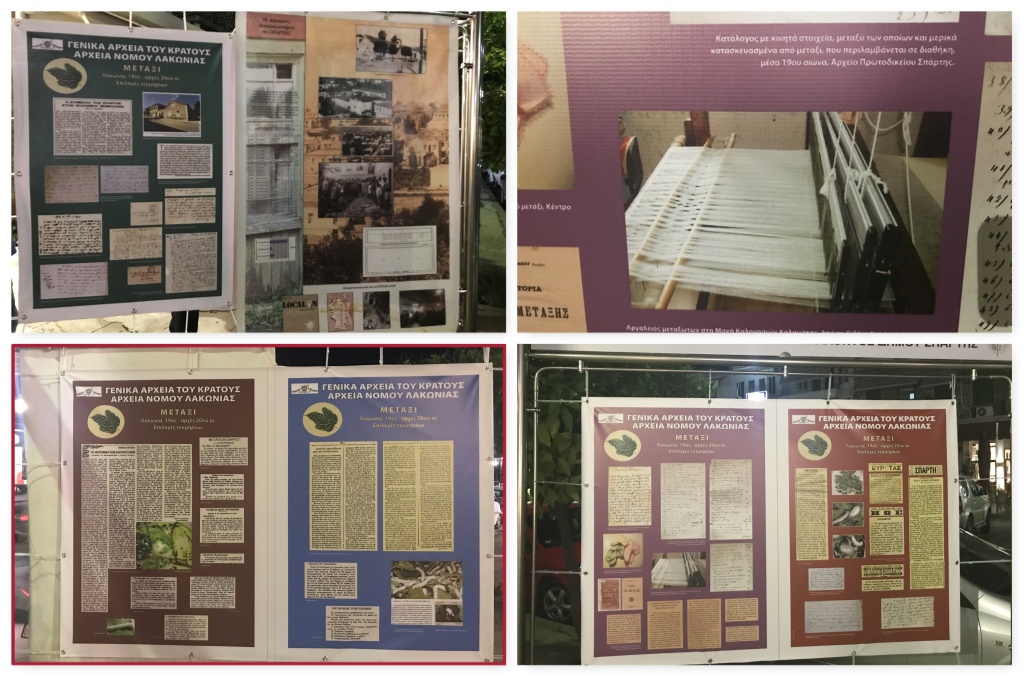by Tasos Kon. Frangis
published in the Faris Newsletter, Issue #77, December 2023, pages 20-21
In the previous issue of our newspaper, we devoted a few pages from the Spartan Journal of 1900, an annual publication with information, studies, statistics, and other topics about the Province of Lacedaemonia at the beginning of the twentieth century. Today, it constitutes an important source for historical research.
In the brief introduction to that article, we promised to return for a further examination, a reflection on the “Products” chapter, which contains information on the agricultural activity, about which, admittedly, we knew little.
So, let’s look again at what the farmers produced in those times. The main products were: oil, citrus fruits, silk, grain, wine, figs, and legumes. Annual average production:
- olive oil, 2,000,000 okades1, the majority of which was exported;
- citrus fruits, 10-12,000,000 oranges and 1,000,000 mandarins, most of which were destined for the Russian markets;
- silk, 50,000 okades of dry cocoons and 200,000 okades of fresh cocoons;
- cereals, 5,500,000 okades, enough for local consumption for six months;
- wine, approximately 1,700,000 okades;
- figs, 160,000 okades;
- legumes, 50,000 okades.
- In smaller quantities,
- In smaller quantities, they also produced walnuts, chestnuts, etc.

of the General State Archives of Greece; photo by Carol Kostakos Petranek
Since then, approximately 120 years later, within the boundaries of the-then Province of Lacedaemonia, the production of olive oil and edible olives remains, along with small quantities of citrus fruits, vegetables, and wine.
The remaining cultivations vanished, and how could it be otherwise? After so many years, migration and urbanization stripped the countryside and enlarged the big urban centers. So, we have arrived at the present day where discussions about the future of agricultural production take place under complex conditions and the threat of the present climate crisis. Already, there are numerous signs predicting difficulties and significant problems.
The circles of discussions, analysis, and ideas are divided. Some turn to the search for a new model, while others, who have observed for years the dysfunction of the current model, join with those who call for the revival of traditional cultivations… Example: the Peloponnese Region has already decided to implement a pilot program to produce first quality silk on 30 hectares in each of the regional units of Laconia, Messenia, and Arcadia.
For this purpose, in uncultivated and riverbank areas along the Eurotas and Pamisos Rivers, four to five farmers will be selected and properly trained. During the implementation of the program, the Region will ensure the distribution of the product and a satisfactory income to the producers. Since the sericulture activity is recognized as environmentally friendly, no kind of environmental permit is required. Also, no planning permit is required for the construction of rearing chambers, warehouses, etc.
The contributors to the project are optimistic about its success, as the demand for the product is high both in the domestic market and in the European Union. “Faris” requested the opinion of our fellow citizens, who have been involved in the textile and fashion industry for a long time, regarding the feasibility of the program. They told us that “such an enterprise would only fail due to mismanagement”…
I (Carol Kostakos Petranek) am honored to receive permission from the Katsoulakos family to translate and share articles from The Faris. Translation verification and corrections have been made by GreekAncestry.net. This is the fifteenth article of the ongoing series. Previous articles can be viewed here.
- Oka / okades is a former unit of weight in Turkey and neighboring countries, equal to about 2.75 pounds (1.25 kilograms) ↩︎

